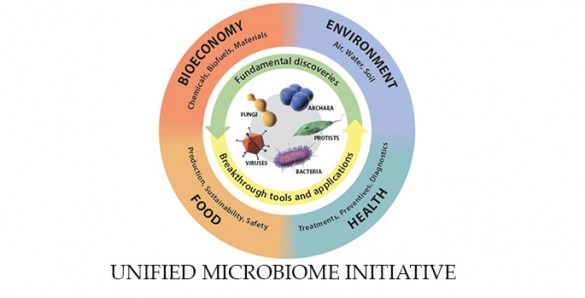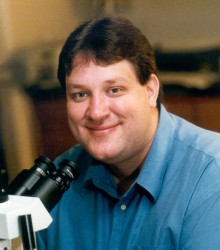
Repeat after me: Bacteria are my friends.
It is true that bacteria cause a number of serious illnesses. No doubt that explains the negative view that the public has about the multitude of invisible microorganisms that swarm all around us. Just look at all the anti-bacterial soaps, sprays and wipes on the market.
In recent years, however, scientists have become increasingly aware of the fact that our microbial fellow-travelers provide many benefits and have a much more profound effect on our lives than we had previously realized.
This growing realization culminated last week in the announcement of a high-level research initiative that would focus on the interactions between bacteria and animals and plants, including humans.
‘Microbial manifesto’
A “Unified Microbiome Initiative” was proposed by key members of the American Society for Microbiology with the backing of both the White House Office of Science and Technology Policy and The Kavli Foundation of Oxnard, CA. This call to scientific arms was made in two complimentary articles: A unified initiative to harness Earth’s microbiomes published in the journal Science and Microbiology: Create a global microbiome effort published in the journal Nature.

Vanderbilt University Professor of Chemistry David Cliffel was a member of the group that crafted the microbial manifesto.
Profound potential
According to the article in Science, the benefits from such a major program could be profound.
- Microbes in the soils and oceans impact the concentration of greenhouse gases in the atmosphere, so have an affect on global warming.
- Manipulating interactions between soil microbes and plants hold promise of increasing agricultural production while decreasing the need for pesticides, fertilizers and water.
- Microbes can be engineered to produce new bio-products ranging from biofuels to antibiotics.
- Management of the microbial communities in and around individuals has the potential for treatment of asthma, diabetes, obesity, infectious diseases, psychiatric illnesses and other common afflictions and is an essential tool for precision medicine.
The authors argue that a vigorous national and global public-private partnership could begin realizing these benefits within 10 years.
New tools needed
[lquote]“The Kavli Foundation got this high-powered group together for its first meeting,” said Cliffel. “Then they realized that they will need new technology to achieve their goals, so they invited several of us who develop instruments of this sort to participate.”[/lquote]
According to the chemist, the biologists want tools that don’t exist yet: instruments that operate non-destructively at the micron scale, can identify the small molecules that bacteria use to communicate with one another and can observe the methods the bacteria use to control their environments.
“So far most of the research on bacteria has been observational. The biologists want to move from this to a hypothesis-driven approach, where they isolate a subject, perturb it in some fashion and measure how it responds,” Cliffel said. “One problem with this approach is that recent studies have found that certain bacteria in the biome cannot survive in isolation so the very act of isolation and observation changes the system. As a result, they need the capability to simultaneously monitor the individual activities of the members of entire communities.”
According to Cliffel, his main contribution to the manifesto is its recognition that the analytic challenge involved is the biggest barrier to realizing these goals: Growth of the fledgling field of microbiomics will depend on the rate at which new instruments can be developed with multimodal imaging capabilities that allow scientists to visualize individual microbes along with their chemical interactions with other microbes and their hosts.
Until then, the microbial world will remain primarily out of sight and out of mind as it has been in the past.